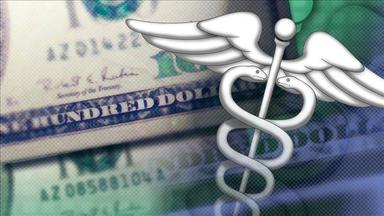Multiple Names are used; Cafeteria Plans, Section 125 Plans, Flex Plans or FSA; the outcome is the same, lowering taxable income. The program was developed under IRS Section 125, which allows participants to pay for certain Health Care and Dependent Care expenses with Pre-Tax dollars. Contributions elected are deducted from the participant's pay before taxes are calculated. Savings can be around 28%!
THREE DIFFERENT PROGRAMS UNDER FSA PLANS
1. Premium Only Plan
1. Premium Only Plan

a. The employer portion of contributions established by the employer for group health coverage is deducted on a pre-tax basis.
Requirement:
a. A separate account where the employee elects to place money to use to pay
for certain out-of-pocket health care costs.
b. The Federal Government places maximums for the Health Care
Reimbursement Accounts
Requirement:
- Salary reduction agreement (annually)
- Plan Document
- Summary Plan Description
a. A separate account where the employee elects to place money to use to pay
for certain out-of-pocket health care costs.
b. The Federal Government places maximums for the Health Care
Reimbursement Accounts
- 2020 - $2,750
- 2021 - $2,750
- 2022 - $3,650
- 2023 - $3,850
| Examples of What's Covered | |
| Acupuncture | Alcoholism |
| Ambulance | Bandages |
| Breast Pumps | Care for handicapped |
| Contact Lens & Supplies | Deductibles |
| Dental Co-Pays & Deductibles | Dental services (non-cosmetic) |
| Diabetic Supplies/Insulin | Doctor office visit co-pays |
| Eligible Hospital Charges | Eye glasses |
| Guide Dog Care | Hearing Aid batteries |
| Holistic Healing Services (medically necessary) | Lab Fees |
| Laser Eye Surgery | Learning Disabilities Care |
| Medical Miles (per IRS limits) | Oral Surgery |
| Orthodontia | Prescription Drugs and Co-Pays |
| Prostheses | Routine Physicals |
| Sunscreen (SPF of 15 or higher) | Vision Exams and X-Rays |
| Wheelschairs | X-Rays |
| Examples of What's Not Covered | |
| Birthing Classes | Dental Bleaching or Bonding |
| Diapers/Diaper Service | Deodorants |
| Electrolysis | Health Club Dues |
| Feminine Hygiene Products | Hair Removal Products |
| Marital or Family Counseling | Massage Therapy |
| Meals, Excluding Impatient Care | Non-Prescription Vitamins |
| Over-the-Counter Medications Without a Presccription | Vitamins/Supplements |
| Note: These are examples of eligible and ineligible expenses according to the IRS. This list is not all inclusive. Call SecureOne at 800-876-7475 if you have any questions. | |

3. Dependent Care FSA
The DC FSA covers daycare expenses for children up to the age of 13, and for elder dependents (like aging parents) that live in your home. It also covers a spouse or dependent that is physically or mentally challenged for whom you claim an exemption. To participate in the DC FSA, you and your spouse must work or attend school full time. Please note that if you’re divorced or separated, the IRS only considers the custodial parent or guardian (the one who has custody 50% of the time) eligible for this account.
The DC FSA covers daycare expenses for children up to the age of 13, and for elder dependents (like aging parents) that live in your home. It also covers a spouse or dependent that is physically or mentally challenged for whom you claim an exemption. To participate in the DC FSA, you and your spouse must work or attend school full time. Please note that if you’re divorced or separated, the IRS only considers the custodial parent or guardian (the one who has custody 50% of the time) eligible for this account.
- Maximum Contribution. The maximum amount you can contribute per year is: $5,000 for married couples filing jointly and singles. If you’re married and filing separately, you may elect up to $2,500 per year.
- You can only spend funds that have accrued in your account; there is no uniform coverage rule.
- Care must be from a qualified provider with a valid Social Security Number (SSN) or Tax ID.
- May only be used for eligible “employment related” expenses (expenses incurred in order for you and/or your spouse to be employed).
| Examples of Covered DC FSA Expenses | Examples of DC FSA Expenses Not Covered |
| Babysitters | Diapers |
| Day-Care Centers | Educational expenses, including Kindergarten |
| Elder Care | Food, Snacks and Meals |
| Day Camps | Incidental Fees such as Activity Fees, Field Trips |
| Preschool | Overnight Camps |
| After-School Care | |
| Nanny/Au Pair | |
| Note: These are examples of eligible and ineligible expenses according to the IRS. This list is not all inclusive. Call SecureOne at 800-876-7475 if you have any questions. | |
Important:
IRS Rules that Apply to FSAs:
IRS Rules that Apply to FSAs:
- Change of Status. Coverage continues for the full plan year. You can’t change your election or drop out of the plan unless you’re no longer employed or you experience a qualified change of status event, such as a marriage or a divorce.
- Use It or Lose It Rule. You’re responsible for using all of the funds in your FSA during the plan year. If any remaining balances are not claimed within 90 days of the plan year-end date, they are forfeited to the employer. So, be sure to plan carefully!
- You can’t transfer funds from your Health FSA into your DC FSA or vice versa.
- Services must be incurred within the plan year.
SecureOne Compliance
- Election Forms (Annual)
- Plan Documents
- Summary Plan Descriptions
- Amendments
- On-Line Access



